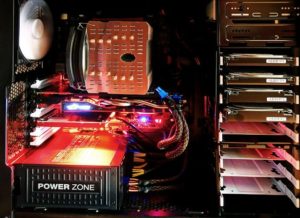
Enhancing Security in the Public Cloud
Public cloud has been frequently targeted for its supposedly poor security posture. Take a look at this insightful blog, which talks about how security in the public cloud is a shared responsibility of both the vendor & the organization implementing the cloud solution.

How Data Center Products Can Build Synergies with the Public Cloud
With the rise of the cloud, data center products have had to work towards building synergies with the public cloud to ensure they keep delivering value to their enterprise customers. Let us look at how enterprises can achieve this.

[Infoblog] Tech Trends 2021
The digital shift arising from the pandemic is changing the way we function and has catalyzed growth for many technologies to become showstoppers. Read this article to know about the tech trends in 2021 and how Calsoft’s Mozaic offerings can help you acclimatize to the new normal.

The Rise and Rise of Cloud Native Computing
Companies are tying their business strategies to the future of cloud native computing. Accenture heralds cloud native computing as the latest wave of digital disruption.

Flattening the Curve with a Smart Healthcare System
The days when a diagnosis was more difficult than a cure are now relegated to history. We are in the age where technologies like IoT, AI, Cloud are powering healthcare systems.

9 Cloud Areas with the Most Potential in the Post-Pandemic World
This blog is a round-up of our series of 9 mini-blogs called Calsoft Cloud 9 Series, which focuses on the 9 cloud use cases that hold a tremendous potential in the Post-Pandemic era.

ServiceNow & the Security Operations Space
Organizations are facing many challenges to secure their IT infrastructure, business services, and user data. When it comes to attacks, security teams find it difficult to zero in on the type and source of threats.

What Does the Rise of Video in the Enterprise Mean for Data Storage?
It is interesting to watch the video megatrend move from rhetoric to absolute reality in the enterprise landscape, and to witness the depth of its penetration in the enterprise.

[Infoblog] Cloud Service Brokerage
The widespread adoption of cloud—which may not always be monitored or secure—leaves enterprises open to many vulnerabilities.

[Infoblog] AWS vs Azure vs Google Cloud
Which cloud platform is best for you? Can’t decide? Check out this InfoBlog to choose the right fit for your requirements.
